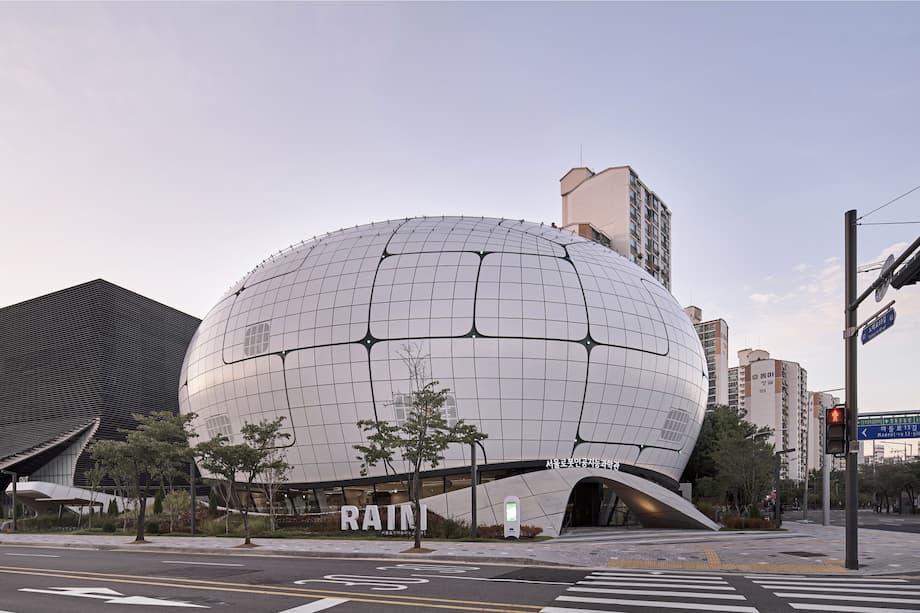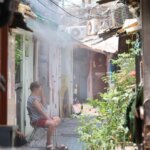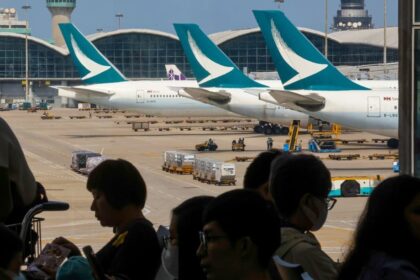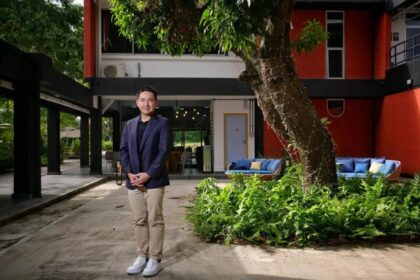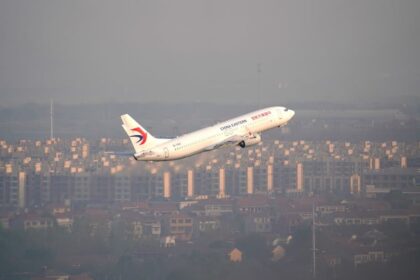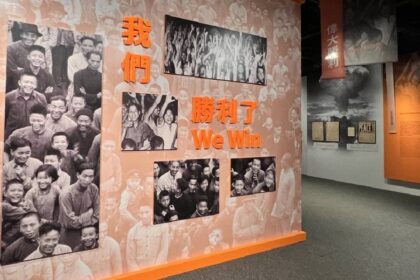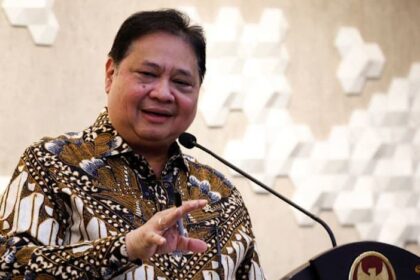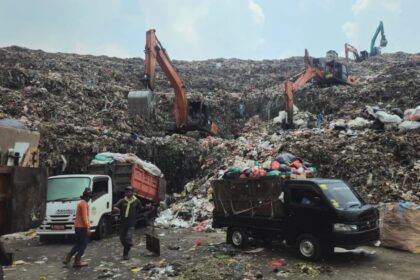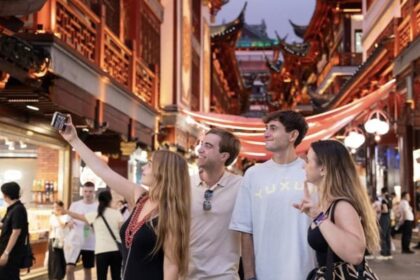Seoul’s Meteoric Rise in the Global AI Race
Seoul, the vibrant capital of South Korea, has been ranked as the world’s second most competitive city in artificial intelligence (AI), according to the 2025 Global AI Cities Index by Counterpoint Research. With a score of 82, Seoul trails only Singapore, which leads with 84 points. This achievement marks a significant leap for Seoul and reflects the city’s strategic investments, robust talent pool, and thriving innovation ecosystem. The ranking also places Beijing and Dubai in third and fourth positions, respectively, highlighting the intensifying global competition among cities to lead the AI revolution.
- Seoul’s Meteoric Rise in the Global AI Race
- What Makes a City Competitive in AI?
- Seoul’s AI Strategy: Building a Sovereign and Sustainable Ecosystem
- Corporate Powerhouses and Startup Ecosystem: The Engines of Innovation
- Talent: The Lifeblood of Seoul’s AI Ambitions
- AI in Action: Seoul’s Real-World Innovations
- How Does Seoul Compare in Broader City Competitiveness?
- Challenges and the Road Ahead
- Global Implications: The Shifting Landscape of AI Power
- In Summary
But what exactly has propelled Seoul to the forefront of AI competitiveness? This article explores the factors behind Seoul’s ascent, the city’s unique strategies, and the broader implications for the global AI landscape.
What Makes a City Competitive in AI?
The Global AI Cities Index evaluates cities based on a comprehensive set of criteria, including:
- Number and impact of AI initiatives
- Communication and digital infrastructure
- University research output and collaboration
- Startup ecosystem strength
- Public and private investment in AI
Seoul’s high ranking is the result of a multi-pronged approach that combines government leadership, corporate innovation, and a focus on nurturing talent. The city’s AI ecosystem is not only producing cutting-edge technology but also integrating AI into sectors like healthcare, education, transportation, and public services.
Comparing Global Leaders: Singapore, Beijing, and Dubai
Singapore’s top ranking is attributed to its world-class digital infrastructure, proactive government policies, and a strong pipeline of tech talent. Beijing, meanwhile, benefits from China’s national AI strategy and a dense concentration of research institutions and tech giants. Dubai’s rapid rise is fueled by ambitious government-led initiatives and partnerships with global technology firms.
Seoul’s position among these cities underscores its emergence as a global innovation hub, especially in the Asia-Pacific region.
Seoul’s AI Strategy: Building a Sovereign and Sustainable Ecosystem
South Korea’s approach to AI is characterized by a drive for technological sovereignty and a commitment to building a full-stack AI infrastructure. The government has announced massive investments, including a $7 billion plan by 2027 to maintain an edge in the global AI ecosystem, with $1 billion earmarked for AI semiconductor firms. An additional $11.56 billion is planned over the next five years to secure advanced GPUs, expand AI data centers, and develop native AI models tailored to Korean language and culture.
These investments are not just about hardware. Seoul’s strategy includes:
- Training 10,000 AI professionals annually
- Establishing the Seoul AI Tech City, a hub ten times larger than the current AI Hub
- Creating a 500 billion KRW (about $370 million) investment fund for AI startups
- Expanding support for GPU servers and AI infrastructure
- Fostering collaborations with international academia and companies
Mayor Oh Se-hoon has been a vocal advocate for these initiatives, stating at the AI SEOUL 2025 conference that the city aims to become one of the top three global AI powerhouses by integrating AI across all sectors and encouraging bold investments and talent attraction.
Seoul’s public sector is also embracing AI, with events like Seoul AI Festa and Smart Life Week promoting public adoption, and administrative innovation driven by a new public data platform and the restructuring of the Seoul Digital Foundation into the Seoul AI Foundation.
Corporate Powerhouses and Startup Ecosystem: The Engines of Innovation
Major South Korean firms such as SK Telecom, Naver, LG Uplus, and Samsung are at the heart of Seoul’s AI surge. SK Telecom, for example, has partnered with Amazon Web Services (AWS) to launch the Ulsan AI Data Center, a hyperscale facility designed to meet the demands of the generative AI era. This center, along with SKT’s Gasan AI Data Center and Edge AI initiatives, forms a critical part of Korea’s AI infrastructure strategy, supporting both B2B and public sector applications.
Samsung’s leadership in AI chips and startups like Rebellions are also contributing to the development of a robust local AI ecosystem. The government’s selection of five teams—SK Telecom, LG AI Research, Naver Cloud, Upstage, and NC AI—to lead the country’s sovereign AI foundation model project further demonstrates the collaborative approach between public and private sectors.
Seoul’s Startup Boom
Seoul’s startup ecosystem is another pillar of its AI competitiveness. According to the Global Startup Ecosystem Report 2025, Seoul rose to 8th place globally, surpassing Singapore and Tokyo. The city’s aggressive investment in R&D—over 906 billion won since 2005—has supported more than 4,000 projects, resulting in significant sales and job creation. The Seoul Vision 2030 Fund aims to raise 5 trillion won by 2026 to foster 50 unicorn companies and position Seoul among the top five global startup cities by 2030.
Seoul’s focus on AI, biotech, fintech, robotics, and creative industries is reflected in its high scores for knowledge accumulation and financing. The city’s ability to recover funds from startups, even as global fund recovery declined, signals a healthy and resilient innovation environment.
Talent: The Lifeblood of Seoul’s AI Ambitions
Attracting and nurturing talent is central to Seoul’s AI strategy. The city has consistently ranked among the top global cities for talent competitiveness, thanks to its world-class universities, vibrant cultural scene, and high quality of life. The Global Talent Competitiveness Index highlights Seoul’s efforts to engage citizens in policy design, focus on quality of life, and create an environment that attracts both domestic and international talent.
Seoul’s appeal to younger generations is particularly noteworthy. For four consecutive years, it has been selected as the favorite global city for the MZ (Millennial and Generation Z) generation, reflecting its dynamic urban environment and opportunities for career growth in technology sectors.
Education and Research
Seoul’s universities and research institutions play a crucial role in driving AI innovation. The city’s emphasis on research and development is evident in its fifth-place ranking in R&D among 48 major global cities, according to the 2024 Global Power City Index. Collaborative projects between academia and industry ensure that research translates into real-world applications, further strengthening Seoul’s AI ecosystem.
AI in Action: Seoul’s Real-World Innovations
Seoul’s AI leadership is not just theoretical—it is visible in practical applications that are transforming daily life. One standout example is Nota AI, a Korean company specializing in AI model compression and optimization. At the 2025 ITS World Congress in Atlanta, Nota AI showcased its generative AI-based intelligent transport systems (ITS), including real-time incident detection and traffic management solutions. These technologies have been successfully deployed in Korea and internationally, including a commercial agreement with Dubai’s Roads and Transport Authority.
Such innovations demonstrate Seoul’s ability to export AI solutions globally and highlight the city’s role as a testbed for next-generation technologies.
How Does Seoul Compare in Broader City Competitiveness?
While Seoul excels in AI, it also performs strongly in broader measures of city competitiveness. In the 2024 Global Power City Index by Japan’s Mori Memorial Foundation, Seoul ranked sixth among 48 major cities, with high marks for accessibility, livability, and research and development. Mayor Oh’s policies to expand housing, improve transportation, and invest in creative sectors have contributed to these gains.
Seoul’s overall competitiveness is further supported by its ranking in the Global Innovation Hubs Index 2024, where it is recognized as a leading innovation hub alongside cities like San Francisco, New York, Beijing, and London. The city’s balanced development across research, innovation economy, and ecosystem indicators positions it as a model for other aspiring innovation hubs.
Challenges and the Road Ahead
Despite its impressive achievements, Seoul faces significant challenges. South Korea’s rapidly aging population, low fertility rate, and political divisions pose risks to sustained economic growth and innovation. Projections suggest that economic growth could slow to below 1% by 2050 unless structural reforms are implemented.
To maintain its momentum, Seoul must continue to:
- Attract and retain top global talent
- Foster a culture of innovation and entrepreneurship
- Invest in emerging technologies like quantum computing
- Navigate geopolitical risks and strengthen international partnerships
Experts emphasize the importance of removing administrative and nationalistic barriers to allow top-tier talent to contribute and ensuring that local initiatives remain aligned with global trends and standards.
Global Implications: The Shifting Landscape of AI Power
Seoul’s rise signals a broader shift in the global AI landscape. While the United States and China remain dominant, cities like Seoul, Singapore, Dubai, and others in the Asia-Pacific and Middle East are rapidly closing the gap. This diversification of AI leadership promises more competition, innovation, and collaboration across borders.
As AI continues to reshape industries and societies, the cities that can combine talent, infrastructure, investment, and a culture of innovation will define the future of technology. Seoul’s example offers valuable lessons for other cities seeking to carve out their place in the AI-driven world.
In Summary
- Seoul ranked second globally in AI city competitiveness, just behind Singapore, in the 2025 Global AI Cities Index.
- The city’s success is driven by massive government investment, a robust startup ecosystem, and strong corporate leadership from firms like SK Telecom and Samsung.
- Seoul’s strategy includes developing sovereign AI models, expanding AI infrastructure, and training thousands of AI professionals annually.
- The city excels in talent attraction, research, and real-world AI applications, with innovations like Nota AI’s traffic management solutions gaining global recognition.
- Seoul also ranks highly in broader city competitiveness and innovation hub indices, reflecting its balanced approach to economic and technological development.
- Challenges remain, including demographic shifts and the need for continued reform, but Seoul’s trajectory offers a blueprint for cities aiming to lead in the AI era.


